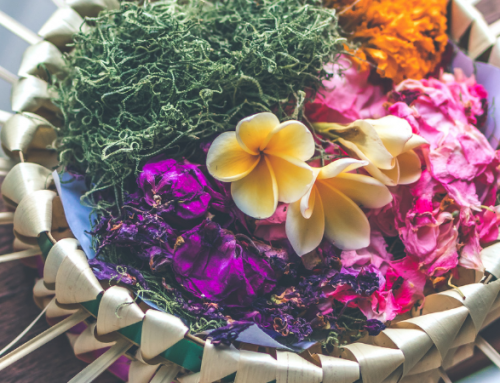COVID-19: Please Remain Calm
As COVID-19 (now officially known as SARS-CoV-2) continues to spread around the world, governments and medical professionals are struggling to identify just how extensive that spread will actually be and the least intrusive and most efficient ways to limit that spread. Watchful attentiveness and avoidance of crowds, coupled with repeated hand washing and restrictions on touching MEN (mouth, eyes, nose), are for now the best preventative actions, in addition to strategic purchases of items that you know that you will personally require for the next couple of weeks. In this climate of uncertainty however many people are freaking out, and acting in ways that will ultimately benefit neither them nor their loved ones, in particular buying up everything they can.
Being a recent evolutionary development the human mind has not yet fully matured, and so when confronted with a crisis many minds lose the ability to think clearly. By ‘mind’ I mean the mental function known in Sanskrit as manas, which coordinates the perceptions that we obtain from our senses into a meaningful narrative that buddhi, our internal faculty of discernment, can use to inform manas how to respond to that narrative. Terror shorts circuits this process, leading people to react rather to act purposefully.
And so we are witnessing aggressive panic buying, much of which seems unusually irrational, such as the ongoing global run on toilet paper. A good deal of this is being driven by herd behavior, or “emotional contagion”. We all tend to “mirror” one another, at least in part thanks to the “mirror neurons” that appear in several brain regions, and being hyper-social animals we are all, consciously or less consciously, aligned with our closest peeps. We are so similar to our friends in how we perceive and respond to the world around us that these similarities can be used to predict not only who our friends are but also how close we are to them socially.
Such potential for alignments makes it easy for us to align with the emotional states of others, which means that we can “catch” emotions from even casual interactions if the general level of unrest in a population in sufficiently high. Fear and anxiety are particularly “infectious,” and can lead to stampedes: when a few in a crowd perceive what they believe to be a threat their sudden fear and ensuing flight may convince those around them of the need to flee as well, and soon the entire mob has been induced to run, often without direction or purpose.
This is bad enough in a localized throng (a word that earlier meant “to press or crush”), but thanks to round-the-clock news bulletins and social media postings that magnify the speed at which “emotional contagion” can spread through a population, COVID-19 has spurred wide swaths of the world’s population to shift into panic mode. It is a truth about humanity that we each have a need to feel competent, to feel in control of our lives, and to act in accordance with those in society that we are close to. Now that most people self-identify as consumers, they consume when stressed, and panic buying can be understood thus: you see other people buying, and you buy; you see photos of empty shelves, and you (wanting to feel and seem to be competent consume) don’t want to be left out.
In a time like now, with a potential lethal menace heading toward each of us and with great uncertainty about how to address that peril, fear makes that threat loom so sinister that a worldwide stampede has begun, focused on purchases particularly of items in large packages (like toilet paper) whose very size suggests to the subconscious a “large” response to the danger.
Even if you are yourself able to resist panic purchases, you will still feel the threat, which you will need to address in some way that is meaningful to you, that is appropriate to the hazard, and that will reduce instead of promote fear contagion. One good way to begin is to give a name to what you are feeling, as doing so temporarily takes you out of that state, whatever it might be.
Once you are examining your situation with increased objectivity, remember that a common cognitive bias is to overemphasizing events that are recent and very vivid. In other words, try to create a more balanced perspective from which to view the situation. Gratitude for what you already have is a great way to begin. In addition, we can all be extremely grateful to Nature that She has decided to slap our wayward species back into wakefulness with a malady whose death rate seems to be stabilizing at about 4%, not the nearly 10% of the first SARS, nor the 35% of MERS. Both these are also coronaviruses, and both like COVID-19 originally originated in animals before they shifted to humans. Thank you Providence!
Since manas always wants to try to think its way out of situations, let it think, but not an in uncontrolled, “OMG what will happen next???” fashion. Find reliable sources of information, become as clear as you can on diagnosis and prognosis, and when you run out of things to think about but still can’t stop thinking, remember that manas comes from the Sanskrit root man, “to think”. The Sanskrit suffix tra means “instrument of” of “protector of”, which makes man + tra = mantra “the instrument of thinking” or “the protector of thought”.
Focus therefore on your mantra, or a mantra, on one of the many names of the Supreme Being. Rely on internal rather than external factors to taking back control in a world that is increasingly out of control. When you do this in concert with others who are striving to do the right thing, you have a satsanga, and in the words of a Sanskrit saying, “what can satsanga not do for humans?”
How long COVID-19 will afflict us and how badly we don’t yet know. What we should all remember is that we should not make a bad situation worse by running about aimlessly like headless chickens.
Om namah sivaya!


